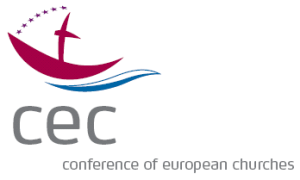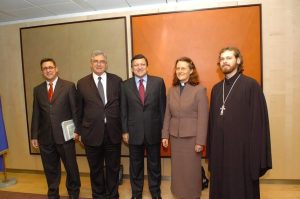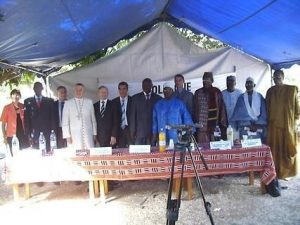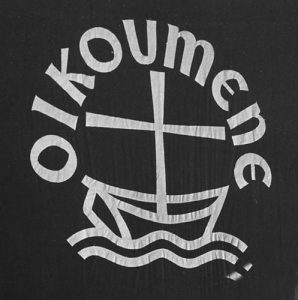Creation
The Conference of European Churches – also KEK after the German initials for the name Konferenz Europäischer Kirchen – was created after WWII during the Cold War aiming at conciliation so that Eastern and Western Churches could further peace and mutual understanding.
Following preparatory meetings in 1953 and 1957, the first assembly was held in Nyborg (Denmark) in 1959. Because of visa problems it took place on board a ship at sea!
The number of members has significantly grown since the creation of the Conference, be they from Orthodox, Protestant, Anglican or Old-Catholic European Churches, except for the Catholic Church.
Organisation
The CEC meets every five years. Its Governing Board implements the assemblies’ decisions. The CEC has two offices, one in Brussels and the other in Strasbourg.
Three commissions were created:
- A joint Commission with the Catholics to work on dialogue between churches from a theological point of view, based on the European Ecumenical Charter, see below;
- A Church and Society Commission to work on themes such as European politics, climate, human rights, freedom of religion and belief;
- A Commission for migrants in Europe.
Collaboration with the Catholic Church
The are numerous common initiatives with the Catholic Church.
Contacts with the European authorities are made by representatives of the CEC and the Commission of the Bishops’ Conference of the European Community (COMECE). A Commission for relations with Muslims in Europe was also jointly created. The CEC also designed, with its Catholic counterpart, a significant common document: the European Ecumenical charter (charta oecumenica).
The European Ecumenical Charter (2001)
The charter was signed in Strasbourg on 22 April, 2001 by the president of the CEC and, for the Catholic, side by the president of the Council of European Episcopal Conferences (CCEE)
The purpose of the charter was summed up in its subheading ‘Guidelines for the Growing Cooperation among the Churches in Europe.’
The document features twelve points, containing certain commitments:
- Called together to unity in faith
- Proclaiming the Gospel together, establishing agreements to avoid competition
- Moving towards one another
- Acting together
- Praying together
- Continuing in dialogue
- Participating in the continuing construction of Europe
- Reconciling peoples and cultures
- Safeguarding the creation
- Strengthening communion with Judaism
- Cultivating relations with Islam
- Encountering other religions and world views
In May 2008 the charter was also signed by the three co-presidents of the Council of Christian Churches in France (CECEF), i.e. Orthodox, Protestant and Catholic Churches.









